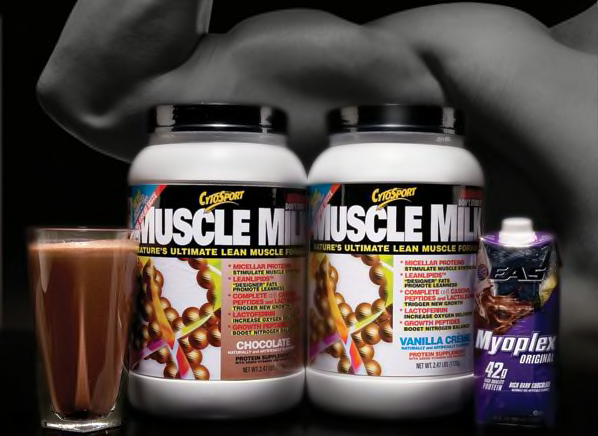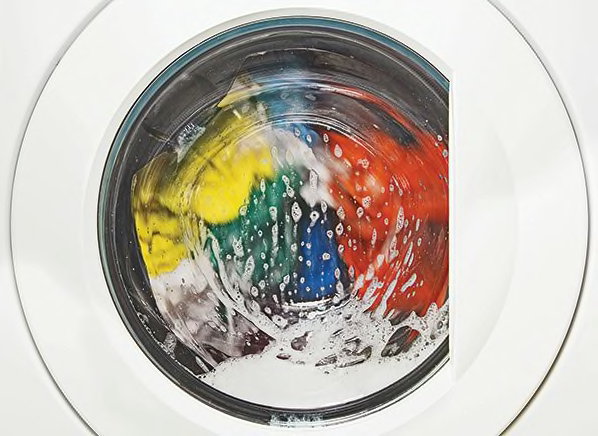We purchased 15 protein powders and drinks mainly in the New York metro area or online and tested multiple samples of each for arsenic, cadmium, lead, and mercury. The results showed a considerable range, but levels in three products were of particular concern because consuming three servings a day could result in daily exposure to arsenic, cadmium, or lead exceeding the limits proposed by USP.
We found that three daily servings of the ready-to-drink liquid EAS Myoplex Original Rich Dark Chocolate Shake provides an average of 16.9 micrograms (µg) of arsenic, exceeding the proposed USP limit of 15 µg per day, and an average of 5.1 µg of cadmium, which is just above the USP limit of 5 µg per day. Concentrations in most products were relatively low, but when taking into account the large serving size suggested, the number of micrograms per day for a few of the products was high compared with most others tested.
The samples of Muscle Milk Chocolate powder we tested contained all four heavy metals, and levels of three metals in the product were among the highest of all in our tests. Average cadmium levels of 5.6 µg in three daily servings slightly exceeded the USP limit of 5 µg per day, and the average lead level of 13.5 µg also topped the USP limit of 10 µg per day. The average arsenic level of 12.2 µg was approaching the USP limit of 15 µg per day, and the average for mercury was 0.7 µg, well below the USP's 15 µg-per-day limit. Three daily servings of Muscle Milk Vanilla Crème contained 12.2 µg of lead, exceeding lead limits, and 11.2 µg of arsenic. A fourth product, Muscle Milk Nutritional Shake Chocolate (liquid), provided an average of 14.3 µg of arsenic per day from three servings, approaching the proposed USP limit.
Cadmium raises special concern because it accumulates in and can damage the kidneys, the same organs that can be damaged by excessive protein consumption. And it can take 20 years for the body to eliminate even half the cadmium absorbed today.
"This is a highly toxic metal, and while there are some cases where decisions have to be weighed against relative risks, accepting that you have to be exposed to any cadmium at all in your protein drink after your workout is definitely not one of them," says Michael Harbut, M.D., director of the Environmental Cancer Initiative at the Karmanos Cancer Institute in Royal Oak, Mich.
"When these toxic heavy metals are combined in a product that is marketed for daily use, that raises serious public health concerns, especially for pregnant women, children, and young adults," says Burns, who has been a toxicology consultant to state and federal government agencies.
For most people, protein drinks are not the only possible source of exposure to heavy metals, but they are an easily avoidable one, since most people can meet their protein needs, help minimize exposure to contaminants, and save money by choosing the right foods.
Shellfish and organ meats such as liver can be high in cadmium, and some plant foods such as potatoes, rice, sunflower seeds, spinach, and other leafy greens can also take in significant amounts of the metal from the environment, due in large part to the use of cadmium-containing phosphate fertilizers, according to Bruce A. Fowler, a researcher at the federal Agency for Toxic Substances and Disease Registry. Food and Drug Administration research suggests that foods such as milk, yogurt, eggs, poultry, and red meats are generally good protein sources that seem to contain little or no cadmium, lead, arsenic, or mercury. For perspective about the relative risks exposure to those metals can pose, consider the agency's list of 275 hazardous substances at toxic waste sites: Arsenic, lead, and mercury rank Nos. 1, 2, and 3, and cadmium is No. 7, based on risks to people around those sites.
Robert Wright, M.D., an associate professor at Harvard Medical School, who is conducting research on the health effects of exposure to toxic metals, says, "Small amounts of exposure are inevitable, but a product that exceeds the USP limit is clearly doing something wrong."
Being exposed simultaneously to a mixture of toxins can also potentially increase health risks, particularly when they target the same organs or systems, as some metals we detected do, according to Harbut. He says that this is the result of a synergistic effect, meaning the effects of two toxic substances together can be even greater than those of the sum of the two, and not enough research has been done to determine whether that occurs from multiple exposures to even relatively low levels of those heavy metals.































